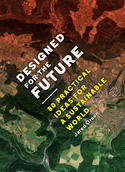Defenders of California’s status-quo claim to be proud of California’s economic growth and worry about what Trump will do to that growth. If you are so impolite as to mention that this has been California’s slowest recovery in 70 years, as the following chart shows, you will be told that slow growth is good. It avoids the excesses of previous business cycles. read more »
Environment
Five Ideas to Make America Greater
Donald Trump’s presidential campaign was based on the notion that he could “Make America Great Again.” But beyond the rhetoric — sometimes lurching into demagoguery — the newly elected president comes to office, as one commentator suggests, “the least policy-savvy president in history.” read more »
- Login to post comments
Unsustainable solutions in the name of sustainability
The other day when I was riding my bike in Minneapolis crossing I-94 near Riverside I encountered a small townhome project built during the first (failed) green era under the Carter administration. It was built to showcase the future. One thing I've learned over the years building my own green homes is to not listen blindly to the experts who parrot others' ideas without thinking of the ramifications.
The world's first solar and earth-berm grass-roof townhome projects look like this today: read more »
- Login to post comments
My Other Bicycle Is An Airbus A380
I could be a pompous prick and brag about how I live in a compact, walkable, mixed use, transit served neighborhood in a seven hundred square foot apartment. My commute to work is measured in blocks not miles. Compared to the average North American I use tiny little sips of water and power. I already own all the physical stuff I’m ever going to need or want. I’m practically invisible in terms of my personal impact on the environment. Yet I enjoying a very high quality of life. read more »
Paris and the Politics of Climate
To some, particularly in the green movement, this month’s Paris climate change summit represents something like the great synods of the early Christian era, where truth and policy, for example, on pastoral celibacy, were determined by the princes of the church. Some others, largely marginalized on the fringes of the Right, insist the whole extravaganza is part of a vast left-wing conspiracy to delude people into accepting a world government.
Lost in translation is that the Paris conference is largely a sideshow camouflaging a potentially epic struggle among national, regional and economic interests. This mundane reality is often lost amid the apocalyptic rhetoric, such as employed by Gov. Jerry Brown, that insists draconian action is necessary to avoid the species’ imminent “extinction.” read more »
- Login to post comments
Fostering a Climate of Intolerance
The Paris Climate Conference, convening this week, takes place in the very place where, arguably, the most dangerous exemplar of hysteria, the Islamic jihadi movement, has left its bloody mark. Yet the think tank mavens, academics, corporate shills and endless processions of bureaucrats gather in the City of Light not to confront the immediate deadly threat, but to ramp up their own grisly scenarios and Draconian solutions. read more »
- Login to post comments
Jerry Brown’s Insufferable Green Piety
At the site of real and immediate tragedy, an old man comes, wielding not a sword to protect civilization from ghastly present threats but to preach the sanctity of California’s green religion. The Paris Climate Change Conference offers a moment of triumph for the 77-year-old Jerry Brown, the apogee of his odd public odyssey. read more »
Environmental Activists Turn up the Rhetorical Heat
What is the endgame of the contemporary green movement? It’s a critical question since environmentalism arguably has become the leading ideological influence in both California government and within the Obama administration. In their public pronouncements, environmental activists have been adept at portraying the green movement as reasonable, science-based and even welcoming of economic growth, often citing the much-exaggerated promise of green jobs. read more »
The Green Urbanization Myth
Once a fringe idea, the notion of using technology to allow humanity to “decouple” from nature is winning new attention, as a central element of what the Breakthrough Institute calls “ecomodernism.” The origins of the decoupling idea can be found in 20th century science fiction visions of domed or underground, climate-controlled, recycling-based cities separated by forests or deserts. read more »
- Login to post comments
Book Review: Designed For The Future by Jared Green
By the fifth word of Designed for the Future, Jared Green had almost lost me. By the end, he hadn’t quite gained me. This slim, visually interesting handbook presents “80 practical ideas for a sustainable world” from the noted author of The Dirt, a weekly blog sponsored by the American Society of Landscape Architects. Green’s earnest mission is to find hope for the future, and with this book, he edits a collection of essays that points to some projects that do. read more »
- Login to post comments






















